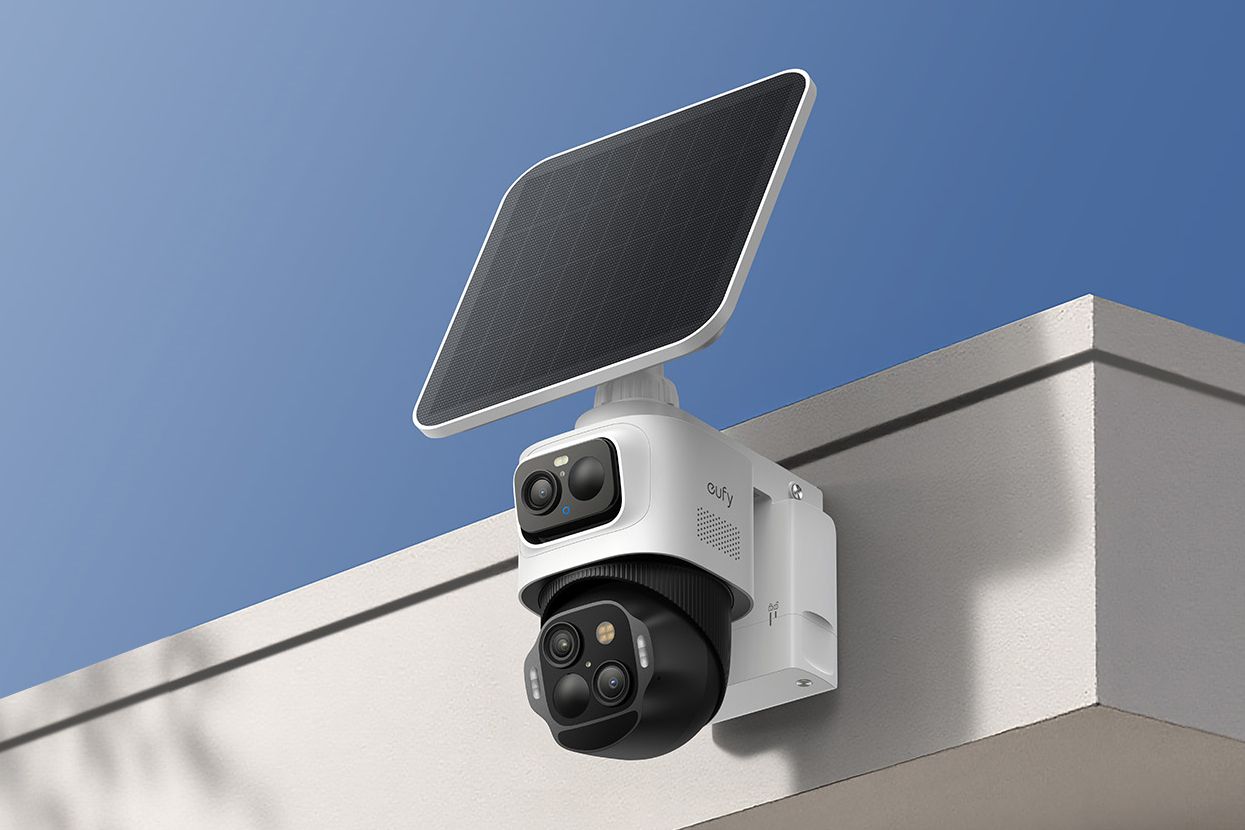Eufy just changed the home security game with a three-camera system that spots intruders from 164 feet away, then automatically zooms in for facial recognition. The $299 Eufycam S4 pairs with a November-launching AI Core that predicts behavior patterns in real-time, marking a major shift toward proactive rather than reactive home security.
Eufy just delivered the security industry's answer to predictive policing for your backyard. The company's new Eufycam S4 system doesn't just record break-ins—it anticipates them, using a sophisticated three-camera setup that can identify potential threats from nearly half a football field away.
The $299 system centers around a stationary 4K wide-angle camera that acts as a sentinel, continuously scanning for movement using dual radar and passive infrared sensors. When something triggers its attention, the real magic happens: two accompanying 2K cameras automatically pan, tilt, and zoom to get crystal-clear facial shots of whoever's approaching, even at the system's maximum 164-foot range.
Anker, Eufy's parent company, designed the S4 with solar sustainability in mind. Its 5.5W solar panel can fully charge the camera with just one hour of direct sunlight, though power-hungry features like 24/7 continuous recording still require a permanent connection. Four LED spotlights enable color night vision, while storage scales from 32GB built-in to 256GB via microSD, or up to 16TB through Anker's HomeBase S380 hub.
The real game-changer arrives in November with Eufy's AI Core accessory. This local processing unit runs an on-device AI model capable of detecting and classifying over 100 different behaviors and events across multiple camera feeds simultaneously. By eliminating cloud analysis delays, the AI Core promises three-second alert times—fast enough for homeowners to actually intervene rather than just review footage after the fact.
"The AI Core is designed to analyze security footage using a local AI model to speed up processing so alerts and deterrence can be triggered in about three seconds," according to Eufy's technical specifications. This represents a fundamental shift from reactive to predictive security, where the system attempts to forecast what a subject might do next based on behavioral patterns.
The smart home security market has been waiting for exactly this kind of innovation. Traditional systems rely on motion detection that triggers after someone's already on your property, followed by cloud processing that can take 10-30 seconds to generate alerts. Eufy's approach flips this model by using local AI to predict intent, not just detect presence.












